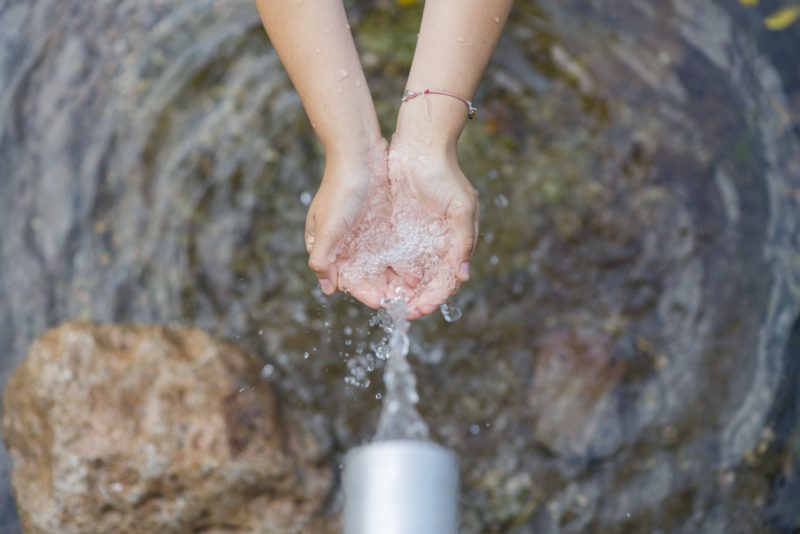TDS, or Total Dissolved Solids, is a term you may be familiar with if you’ve ever checked the label of your favourite brand of mineral water in detail. Nordic Life water is naturally pure, with one of the lowest counts of total dissolved solids of any spring water in the world. But what does TDS actually mean, and what difference does it make to the water you’re drinking, and ultimately, your health?
The term TDS refers to the minerals, salts, metals and other organic or inorganic materials dissolved in the water. These originate from a range of sources, and may be beneficial, neutral or harmful depending on their nature and the amounts in which they are present.
It’s useful to divide them into two categories:
Firstly, you have dissolved solids which occur naturally in the water. This group is usually made up of materials such as calcium, magnesium, potassium, or sodium salts, bicarbonates, chlorides, and sulfates. Their origin is mainly in the rocks and soils which the water passes through, absorbing molecules as it goes. Many of these are beneficial to human health, at least in certain concentrations, however at high levels they may pose a risk.
Secondly, there are “man-made” solids which can enter the water. These can include industrial chemicals, molecules which leach from the piping used in plumbing systems, drinking water treatment chemicals and agricultural runoff containing fertilisers or pesticides which enters the water table.
In the vast majority of cases these are undesirable, and generally their levels in drinking water will be closely regulated, but they are not always entirely eliminated.
The amount of TDS can vary significantly from one source of water to another. To give you an idea of the differences, most authorities allow for an acceptable level of up to 500mg/litre, although in developing nations this can often be exceeded. Many mass-market bottled waters contain between 100-300 mg/L. By comparison, Nordic Life is an exceptionally pure water, with as little as 40 mg/litre TDS.
So, how is a low TDS beneficial to health?
The key here is the element of choice and control over what we put into our bodies. While it’s true that some bottled waters with a moderate level of TDS will contain mostly beneficial salts, minerals and so forth, these are all readily available from food sources anyway. Why risk encountering potentially harmful substances in pursuit of beneficial ones which are easily acquired through a healthy diet?
Drinking a low TDS water allows you to be sure that you’re hydrating your body and nothing more – no harmful additives, no worries about salt or mineral levels, no strange flavours or deposits, simply water in its purest form.

